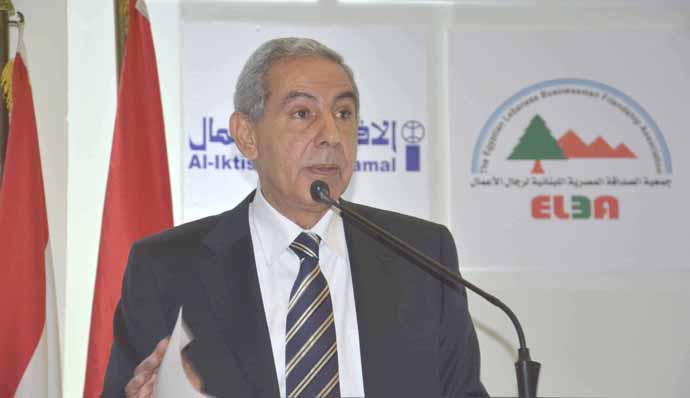An inclusive developmental plan and reviving economic relations with African nations
Addis Ababa Forum aims to establish a free-trade zone between the three major economic blocs, COMESA, SADEC and EAEC
Organizing sophisticated promotional delegations, 14th of next month, which would include Senegal, Ghana, and Cote Devoir
Minister of Trade and Industry Tarek Qabil announced the completion of a comprehensive working plan on developing and enhancing commercial and economic relations with African countries. He confirmed that African market represents one of the top priorities of Egyptian foreign trade policy. This is based on the Ministry’s endeavors to establish strong ties with different countries of Africa, which would have a positive outcome on flow of trade and investments.
Qabil stressed on Egypt›s keenness to boost cooperation and re-establish kinships with African countries and economic blocs. Such interests were reflected in the strike of many commercial agreements, willing to push mutual trade exchange major steps ahead. He added that Egypt supports the continent›s integration through its participation and encouragement to revive major African economic blocs.
Egypt contributed to the Continental Free Trade Area (CFTA) negotiations, held in Addis Ababa on Feb. 22, which lasts for 5 days. These negotiations chiefly aim to create a free trade zone among 3 main African economic blocs: COMESA, EAC, and SADC.
Qabil mentioned that under this working plan, high-profile promoting campaigns would be organised; including missions to Western Africa between 14-21 March this year. Moreover, consultations and coordination are presently carried out with the 6th of October Investors Association, to prepare a visit by prominent Egyptian investors to the Democratic Republic of Congo. This visit aims to examine the possibility of establishing a 5 sq/km Egyptian industrial zone in the Nile basin nation.
Moreover, an Egyptian delegation will visit Lebanon, by the end of this month, to cooperate with the Egyptian-Lebanese Businessmen Friendship Association (ELBA), efforts that would benefit from Lebanese expertise in marketing techniques to promote products in African markets. It would also be coordinated with a number of major Egyptian power companies to examine potential investments in electricity and renewable energy in Africa.
March this year will hold a meeting between nearly 10 African ambassadors in Cairo and 17 major Egyptian companies. It is planned to establish maritime lines directly linking Egyptian and African ports. The plan includes, as well, constructing 12 Egyptian logistics centres across Africa -overcoming obstacles that might face exporters reaching targeted markets.
Within such framework, Egypt is reviewing an agreement with a number of logistics companies, including Bolloré Logistics Group -which controls several logistics locations in Africa. Such logistics centres are expected to embrace a perfect environment for transporting commodities to/from Egypt and Africa. This comes parallel to establishing 5 new Egyptian commercial offices in Tanzania, Uganda, Djibouti, Ghana and Côte d’Ivoire.
African-Egyptian trade exchange:
Qabil confirmed that Egyptian exports to Africa reached $4.3bn in 2013. However, they dropped in 2014 to $3.9bn -namely by 10.4 per cent. Moreover, African imports to Egypt dropped in 2014 to $1.2bn against $1.4bn a year before -specifically 13.1 per cent. Which was directly translated into a decrease in trade exchange -recording $5.14bn in 2014 against $5.78bn in 2013.
Moreover, Egypt had a $2.6bn trade surplus in 2014, compared to $2.9bn in 2013 -9.2 per cent drop in trading balance. Egypt’s direct investments in Africa are estimated at $8bn in constructions, contracting, engineering and chemical industries.
Egypt’s trade relations under COMESA:
Qabil pointed out that Egypt and COMESA trade exchange from 2010 to 2014 was estimated at $2.7bn. While, Egyptian exports reached more than $2bn, representing 8 per cent of its total exports in 2014 -most of which were plastics, ceramic, and electrical devices. On the other hand, most COMESA imports to Egypt circulated in products like tea, coffee, copper, and livestock with a cost of $700m in the same year.


